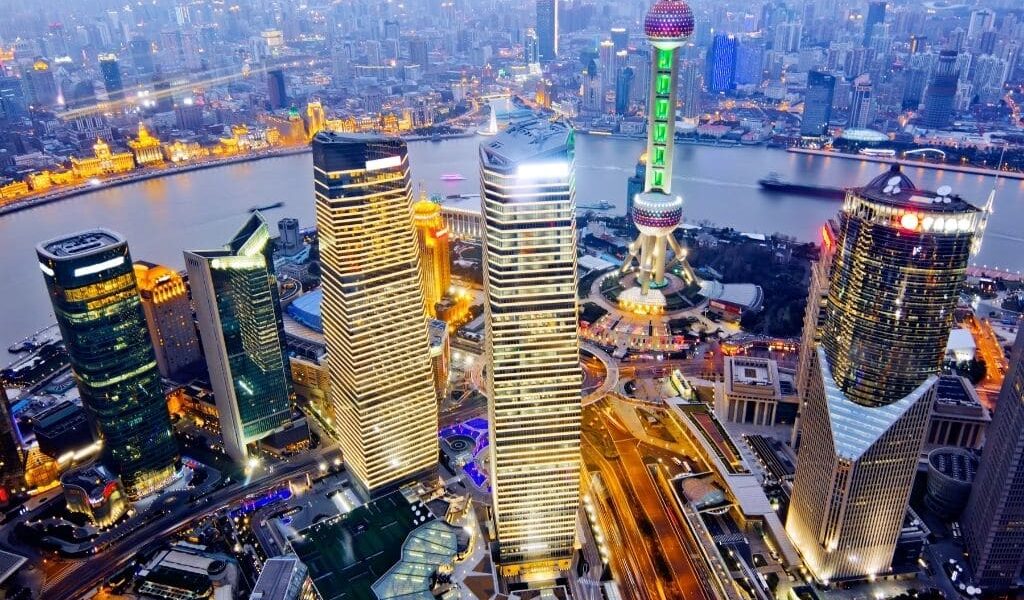In China, billionaires are the golden geese driving the nation’s extraordinary economic rise. These entrepreneurs have played a key role in the country’s transformation from a rigid communist state to a global economic powerhouse. But behind their success lies a grim truth—no matter how much wealth or influence they accumulate, they remain under the watchful eye of an authoritarian regime that can swiftly turn against them.
While China identifies as a communist nation, the reality is that its growth has been fueled by a vibrant private sector, captured in the “50-60-70-80” formula:
- 50% of China’s tax revenue,
- 60% of its GDP,
- 70% of its technological innovations,
- 80% of its urban employment.
But these contributions don’t guarantee safety. China’s entrepreneurs live under the constant threat of government intervention, often facing severe repercussions when their success or criticism challenges the authority of the Communist Party.
The Fall of Bao Fan and Renaissance Holdings

Bao Fan, founder of the boutique investment firm Volt Renaissance Holdings, is a striking example of the precarious balance between wealth and state control in China. Once a major player in facilitating mergers and IPOs in the country’s financial sector, Bao’s fortunes changed dramatically when he mysteriously disappeared in February 2023.
It was later revealed that Bao was under government investigation, and his company’s stock plummeted by 73%. Renaissance Holdings, once thriving, was left in a state of freefall, halting trading and struggling to recover. Bao’s case, while shocking, is emblematic of the risks that come with success in China’s business world—when the state decides to step in, the consequences are swift and unforgiving.
Sun Dawu: A Billionaire Farmer Who Spoke Too Freely
Sun Dawu, a self-made billionaire known for his agricultural empire, faced a similarly brutal fate. In 2021, Sun was arrested and charged with a list of offenses, including “picking quarrels” and illegal occupation of land. His real crime, however, was his vocal criticism of the Chinese government.
For years, Sun had been a prominent figure advocating for farmers and openly questioning government policies. Despite his contributions to China’s agricultural sector, Sun’s outspokenness ultimately led to his downfall. He was sentenced to 18 years in prison—a virtual life sentence at the age of 70—demonstrating that even the most successful entrepreneurs in China are not immune to the iron grip of the state.
Jack Ma: Alibaba’s Rise and the Price of Criticism

Jack Ma, the founder of Alibaba and China’s most famous entrepreneur, learned firsthand how dangerous it can be to criticize the government. In October 2020, Ma publicly criticized China’s regulatory environment, sparking a chain of events that would see him disappear from public view for three months.
While Ma eventually resurfaced, Alibaba was fined a staggering $2.8 billion, and Ma has since kept a notably low profile. Though he avoided the harsh prison sentences faced by other outspoken billionaires, his case is a stark reminder that even the most powerful business figures in China can be brought to heel if they challenge the state.
Ren Zhiqiang: From Real Estate Tycoon to Political Prisoner
Ren Zhiqiang, a former real estate tycoon, met an even harsher fate after he criticized President Xi Jinping’s handling of the COVID-19 pandemic. Known for his blunt commentary, Ren was sentenced to 18 years in prison on charges of corruption—a convenient accusation used to silence those who speak out against the regime.
Ren’s case, like those of Sun Dawu and Jack Ma, follows a familiar pattern: entrepreneurs who challenge the Chinese Communist Party, whether directly or indirectly, are often stripped of their wealth, power, and freedom. The message is clear—no one is untouchable in China’s political landscape.
The Larger Impact: Private Sector at Risk
The plight of China’s billionaires is a cautionary tale not just for domestic entrepreneurs, but also for foreign businesses operating in China. The unpredictable nature of government intervention has made the country’s business environment increasingly risky. If homegrown giants like Jack Ma and Sun Dawu can be targeted, foreign companies may find themselves equally vulnerable to sudden regulatory crackdowns or political maneuvering.
This climate of uncertainty is already causing some international companies to reconsider their investments in China, recognizing that the rewards of tapping into the country’s vast market are often outweighed by the risks of running afoul of the government.
Disappearing Acts: Beyond Business Tycoons
It’s not just billionaires who face the wrath of the state. In recent years, high-profile individuals from various fields—actors, athletes, and even government officials—have vanished after falling out of favor with the regime. Tennis star Peng Shuai’s disappearance after accusing a top government official of misconduct sparked international concern. While she eventually reappeared, it was clear that her return came with conditions, including a public retraction of her claims.
The trend of disappearing public figures has cast a shadow over China’s global image, with growing concerns about the country’s treatment of dissenting voices. Whether it’s a billionaire, a celebrity, or a foreign diplomat, those who challenge the Chinese government are swiftly silenced.
Conclusion: The High Price of Success in China
China’s billionaires may have played a crucial role in the country’s rise to economic power, but their success comes with a price. The very wealth and influence that entrepreneurs like Bao Fan, Sun Dawu, and Jack Ma have achieved make them targets for a government determined to maintain control over every aspect of society.
For the private sector in China, the risks are high. While the potential for economic growth is vast, the threat of government intervention looms large, making it clear that no level of success is safe from political reprisal. As foreign investors begin to take note, the future of business in China may hinge on how much risk companies are willing to accept in exchange for access to the world’s second-largest economy.







 {
#divFLRARight, #divFLRALeft {
display: none !important;
}
}
</style>
<script type=)